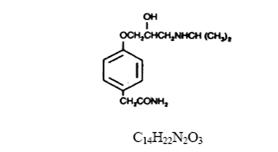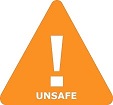Modern medicine has evolved so much so that sooner or later every breastfeeding mother needs to take it in one form or other. Medication that is present in mothers blood will transfer into her breast milk to some extent. Most drugs do so at low levels and pose no real risk to infants but then there are some exceptions. In This post will discuss whether Atenolol 120 In 1 Bottle is safe in breast-feeding or not.
What is Atenolol 120 In 1 Bottle used for?
Hypertension Atenolol is indicated for the treatment of hypertension, to lower blood pressure. Lowering blood pressure lowers the risk of fatal and non-fatal cardiovascular events, primarily strokes and myocardial infarctions. These benefits have been seen in controlled trials of antihypertensive drugs from a wide variety of pharmacologic classes including atenolol. Control of high blood pressure should be part of comprehensive cardiovascular risk management, including, as appropriate, lipid control, diabetes management, antithrombotic therapy, smoking cessation, exercise, and limited sodium intake. Many patients will require more than 1 drug to achieve blood pressure goals. For specific advice on goals and management, see published guidelines, such as those of the National High Blood Pressure Education Program's Joint National Committee on Prevention, Detection, Evaluation, and Treatment of High Blood Pressure (JNC). Numerous antihypertensive drugs, from a variety of pharmacologic classes and with different mechanisms of action, have been shown in randomized controlled trials to reduce cardiovascular morbidity and mortality, and it can be concluded that it is blood pressure reduction, and not some other pharmacologic property of the drugs, that is largely responsible for those benefits. The largest and most consistent cardiovascular outcome benefit has been a reduction in the risk of stroke, but reductions in myocardial infarction and cardiovascular mortality also have been seen regularly. Elevated systolic or diastolic pressure causes increased cardiovascular risk, and the absolute risk increase per mmHg is greater at higher blood pressures, so that even modest reductions of severe hypertension can provide substantial benefit. Relative risk reduction from blood pressure reduction is similar across populations with varying absolute risk, so the absolute benefit is greater in patients who are at higher risk independent of their hypertension (for example, patients with diabetes or hyperlipidemia), and such patients would be expected to benefit from more aggressive treatment to a lower blood pressure goal. Some antihypertensive drugs have smaller blood pressure effects (as monotherapy) in black patients, and many antihypertensive drugs have additional approved indications and effects (e.g., on angina, heart failure, or diabetic kidney disease). These considerations may guide selection of therapy. Atenolol may be administered with other antihypertensive agents. Angina Pectoris Due to Coronary Atherosclerosis Atenolol is indicated for the long-term management of patients with angina pectoris. Acute Myocardial Infarction Atenolol is indicated in the management of hemodynamically stable patients with definite or suspected acute myocardial infarction to reduce cardiovascular mortality. Treatment can be initiated as soon as the patient's clinical condition allows (see DOSAGE AND ADMINISTRATION, CONTRAINDICATIONS, and WARNINGS). In general, there is no basis for treating patients like those who were excluded from the ISIS-1 trial (blood pressure less than 100 mm Hg systolic, heart rate less than 50 bpm) or have other reasons to avoid beta blockade. As noted above, some subgroups (e.g., elderly patients with systolic blood pressure below 120 mm Hg) seemed less likely to benefit.
Is Atenolol 120 In 1 Bottle usage safe while breastfeeding? If a lactating mother is using it can there be any effect on growth or development of infant?
As Atenolol 120 In 1 Bottle is made of only Atenolol, and Atenolol is unsafe to use in breastfeeding we can safely reach on conclusion that Atenolol 120 In 1 Bottle is also unsafe to use while breastfeeding. Below is detailed analysis of Atenolol and Atenolol 120 In 1 Bottle during location. We recommend you to go through provided detailed analysis as below take decision accordingly. We also recommend you talk to your health care provider before making final decision.
Statement of Manufacturer/Labeler about breastfeeding usage
Nursing Mothers Atenolol is excreted in human breast milk at a ratio of 1.5 to 6.8 when compared to the concentration in plasma. Caution should be exercised when atenolol is administered to a nursing woman. Clinically significant bradycardia has been reported in breast fed infants. Premature infants, or infants with impaired renal function, may be more likely to develop adverse effects. Neonates born to mothers who are receiving atenolol at parturition or breast-feeding may be at risk for hypoglycemia and bradycardia. Caution should be exercised when atenolol is administered during pregnancy or to a woman who is breast-feeding (see WARNING, Pregnancy and Fetal Injury).
Atenolol 120 In 1 Bottle Breastfeeding Analsys
UnsafeCAS Number: 29122-68-7
One case of cyanosis (blue skin discoloration), bradicardia, hypotermia and hypotension in a 5-days old girl whose mother was on 50 mg every 12 hours was reported. It does concentrate in breast milk. Several reports have shown excessive excretion to mother's milk.
Atenolol 120 In 1 Bottle Breastfeeding Analsys - 2
CAS Number: 29122-68-7
Because of atenolol's relatively extensive excretion into breastmilk and its extensive renal excretion, other agents may be preferred while nursing a newborn or preterm infant or with high maternal dosages.[1][2] Infants older than 3 months of age appear to be at little risk of adverse effects from atenolol in breastmilk. Timing breastfeeding with respect to the time of the atenolol dose appears to be of little benefit in reducing infant atenolol exposure because the time of the peak is unpredictable.[3]

I am nursing mother and I have already used Atenolol 120 In 1 Bottle, what should I do?
We have already established that Atenolol 120 In 1 Bottle is unsafe in breastfeeding and breastfeeding while using Atenolol 120 In 1 Bottle is not a good idea however if have already used and then breastfed the baby then you shall monitor the behavior and health of baby closely and inform your doctor as soon as possible. In case of emergency please call 911.
I am nursing mother and my doctor has suggested me to use Atenolol 120 In 1 Bottle, is it safe?
If your doctor knows that you are breastfeeding mother and still prescribes Atenolol 120 In 1 Bottle then there must be good reason for that as Atenolol 120 In 1 Bottle is considered unsafe, It usually happens when doctor finds that overall advantage of taking outweighs the overall risk.
If I am using Atenolol 120 In 1 Bottle, will my baby need extra monitoring?
Yes, Extra monitoring is required if mother is using Atenolol 120 In 1 Bottle and breastfeeding as it is considered unsafe for baby.
Who can I talk to if I have questions about usage of Atenolol 120 In 1 Bottle in breastfeeding?
US
National Womens Health and Breastfeeding Helpline: 800-994-9662 (TDD 888-220-5446) 9 a.m. and 6 p.m. ET, Monday through Friday
UK
National Breastfeeding Helpline: 0300-100-0212 9.30am to 9.30pm, daily
Association of Breastfeeding Mothers: 0300-330-5453
La Leche League: 0345-120-2918
The Breastfeeding Network supporter line in Bengali and Sylheti: 0300-456-2421
National Childbirth Trust (NCT): 0300-330-0700
Australia
National Breastfeeding Helpline: 1800-686-268 24 hours a day, 7 days a week
Canada
Telehealth Ontario for breastfeeding: 1-866-797-0000 24 hours a day, 7 days a week



